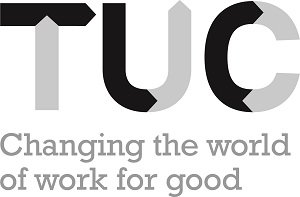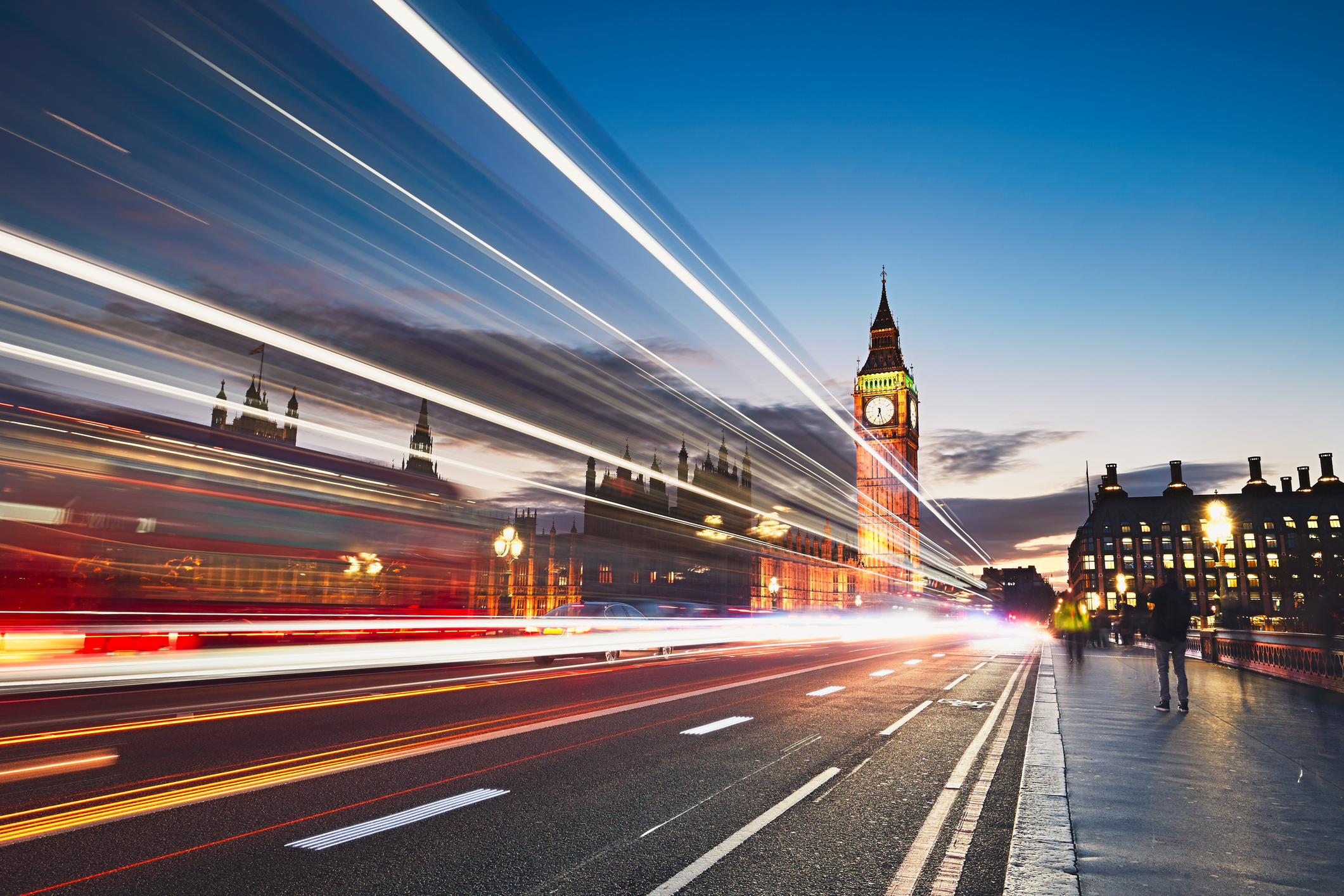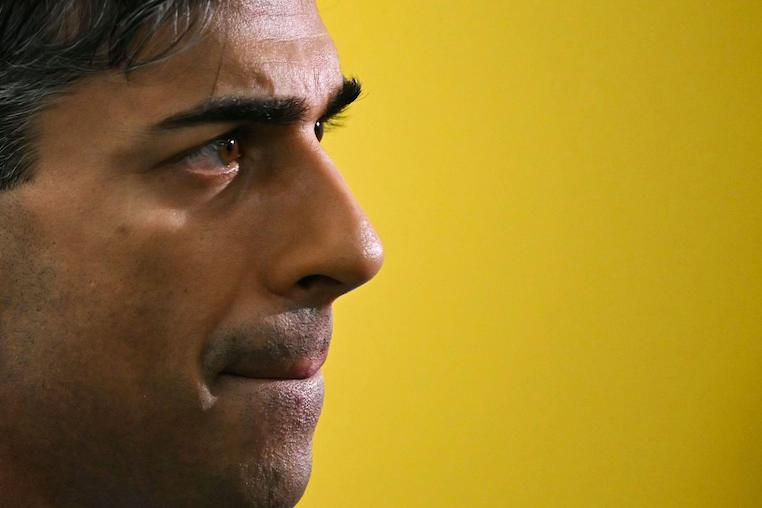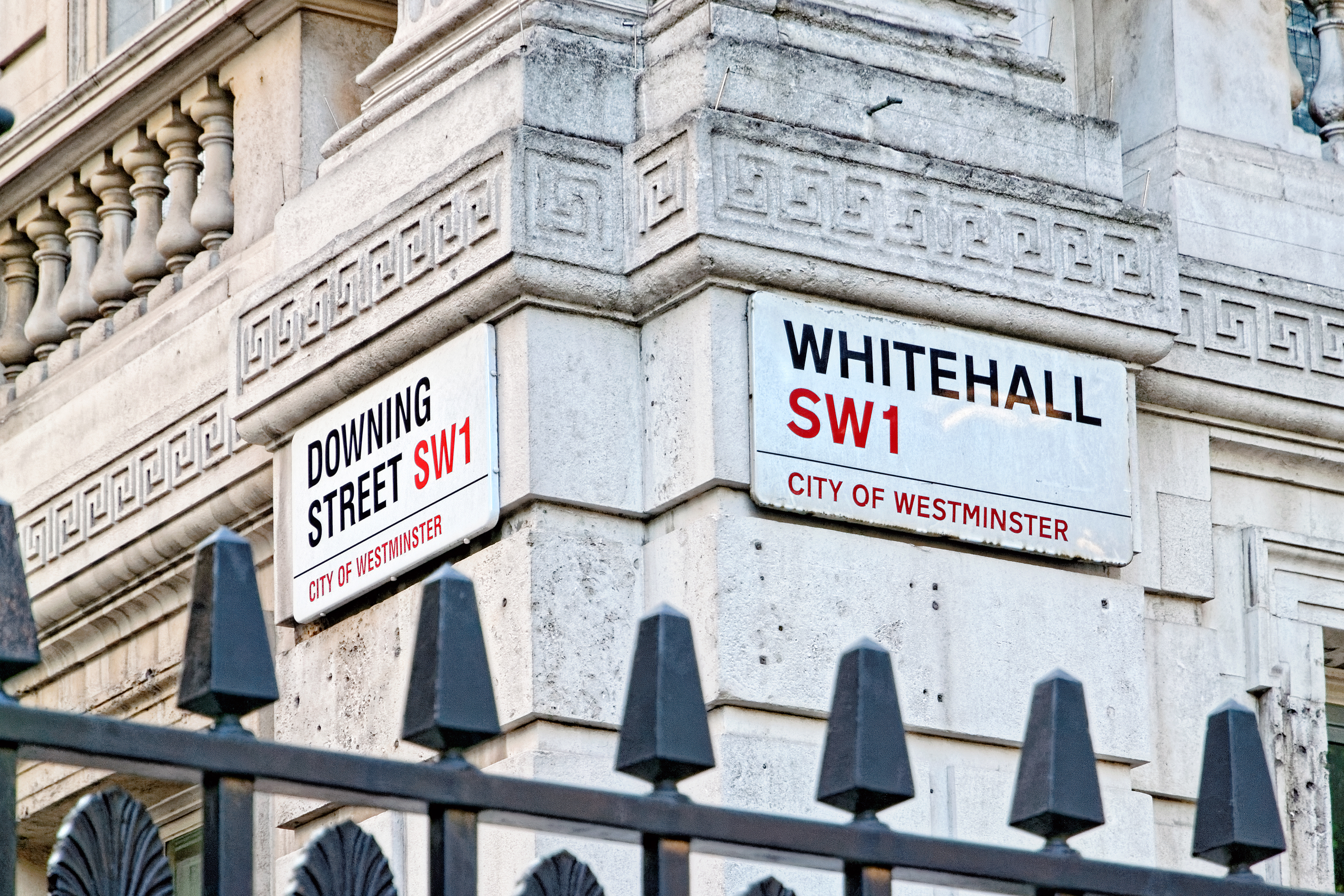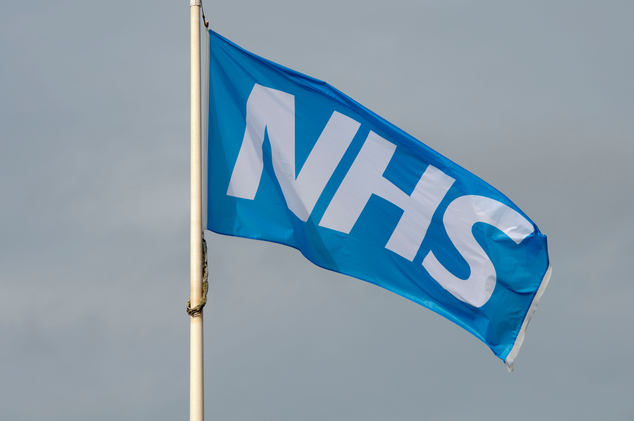What is a Leaders Debate?
Broadcast across the entirety of the UK around election time, leaders debates capture the controlled interactions of Britain’s foremost politicians. Lasting around two hours and including as many as seven parties, election debates have now become an unofficial staple of Britain’s election cycle. However, this hasn’t always been the case.
The 2010 election was the first election cycle to include election debates, placing the UK some 50 years behind the United States of America. In America, the Presidential debate has been long established as a central feature of every Presidential election. Prior to 2010, the UK was considered unusual as a democracy, in not holding televised election debates.
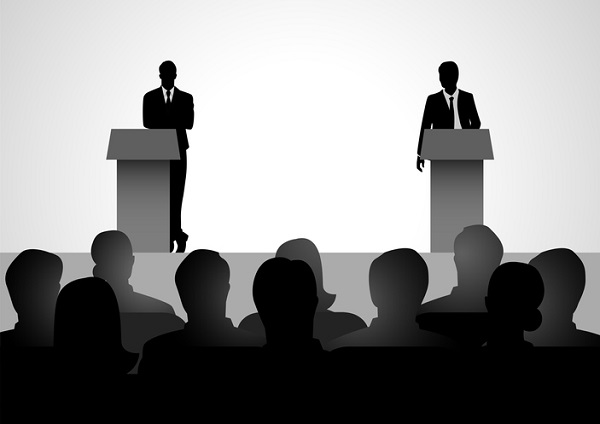
After a strong start in 2010, viewing figures for election debates have fallen.
History of TV Debates in the UK
As Britain’s first-ever series of election debates, the 2010 leaders debate was closely analysed and even an influential affair. Nick Clegg’s inclusion helped temporarily catapult both himself and the Lib Dems as credible contenders in that year’s election contest.
The ‘Cleggmania’ phenomenon can in part be explained by Clegg’s impressive performance at the first TV debate. The performance had a clear short term impact on the polls with some headlines even hailing a ‘yellow surge’. However, the following two debates saw Brown and Cameron more-or-less neutralise the media-effective Nick Clegg, and when it came to the final election results, the Lib Dems only increased their vote share by 1% on polling day.
The political landscape in 2015 was very different to that of 2010. More parties staked a claim to be involved the debates, and increased competition made negotiations between the parties and the media difficult. Much unlike his three appearances in 2010, Cameron only attended the one 2015 debate. Alongside Cameron, that cast included: Labour’s Ed Miliband, the Lib Dems’ Nick Clegg, UKIP’s Nigel Farage, the SNP’s Nicola Sturgeon, the Green’s Natalie Bennet and Plaid Cymru’s Leanne Wood. A second debate was held, but Prime Minister Cameron did not attend.
In 2017, Theresa May simply refused to turn up to a televised debate under any circumstances. Jeremy Corbyn had also been considering his attendance but ultimately announced just 24-hours before the broadcast that he would be taking part. May’s absence fed the idea that the Prime Minister was not the ‘strong and able’ politician she claimed to be, and opinion polls later suggested that her absence had been noted by voters as a factor come election day.
The 2019 election was the first to include a one-on-one debate between the Labour and Conservative Party Leaders. There were two Corbyn vs. Johnson debates in total. Other debates were also held in which the Labour and Conservative parties sent representatives. Notably, Channel 4 held a leaders’ debate focused only on the climate crisis; Farage and Johnson refused to attend. Channel 4 then controversially replaced them with ice sculptures of their party logos. Despite the social media fuss at the time, Boris Johnson’s reluctance to attend the Channel 4 debate clearly had no bearing on the final election result.
Hitherto no political party in Britain has made any really significant criticism of any debate moderator. This compares strikingly with the all round criticism heaped on US moderator Chris Wallace in the 2020 debate between presidential candidates, Mr Biden and Mr Trump.
Do people watch Leaders debates?
The first 2010 election debate in the UK recorded an audience of 10.3 million viewers; it remains Britain’s most viewed election debate to this day.
The Cameron attended 2015 election debate peaked with a viewership of 7.4 million. A notable drop-off from 2010.
In 2017, ‘Britain’s Got Talent’ (BGT) out-competed the BBC’s 2017 political debate. The latter managed only 3.5 million viewers compared to ‘BGT’s’ 8.5million.
The Corbyn-Johnson debate in 2019 attracted an average audience of 6.7 million viewers.
Do Leaders Debates Matter?
Since 2010, the exciting novelty factor of TV leaders debates has worn off considerably and there has been far less opinion poll movement in there aftermath. Even in the 2010, when ‘Cleggmania’ briefly threatened to shatter the two-party system, the Lib Dems ultimately lost seats on the 2005 total.
The 2015 elections debates also failed to have any significant impact on the contest. The 2015 debates, were widely regarded as instantly forgettable’. With novelty no longer a factor, it’s often only those already engaged who have maintained an interest in TV debates.
Moreover Party Leaders are now so closely trained by their media-managers that leader-interactions are hardly much of a spectacle. Leaders do compete for ‘viral’ moments that might sway the undecided voter watching, but the carefully moderated format does not lend itself to such action.
Professor of Politics at the University of Nottingham, Steven Fieldings has commented, ‘TV debates are a bit like Formula One … They’re boring until someone has a car crash, so now everyone is waiting for that car crash, but there usually isn’t one as the people participating are so well prepared that they just avoid all mistakes’.
The 2019 Corbyn vs. Johnson debate is case in point. One YouGov poll found no clear winner with Boris Johnson polling at 51% and Jeremy Corbyn at 49%. Such numbers were not nearly enough to spark a comeback for Corbyn in the polls.
Ironically, the BBC debate in 2017 may have proved the most influential, in that May’s absence became a media talking point for the rest of the campaign. It then fed into a narrative of weakness on the Prime Minister’s part. However, if May’s non-attendance is all that is remembered about the 2017 debate, it also suggests that the content cannot have been of much interest.
A debates Commission
The UK does not have a formal system to oversee TV election debates. Instead, election debates are the result of arduous negotiations on behalf of party officials and TV networks.
As we have seen, there is no obligation for a party leader to attend and the numbers of attendees is not fixed. This has led to calls for the creation of a formal ‘Debates Commission’- such as the one in operation in the US, where a bipartisan commission organises the format of the debate.
According to its proponents, a Debates Commission would ensure against last-minute bargaining and allow for fair and free competition between the parties. However, a ‘bipartisan’ commission is far more difficult to organize in any system when there are more than two main parties.
Ironically in the 2020 US election campaign, it was the Debates Commission itself which cancelled the second presidential debate after the Trump campaign refused to engage with the commission’s plans for a virtual debate.
https://www.politics.co.uk/wp-admin/post.php?action=edit&classic-editor&post=8698
If leaders won’t agree to a TV debate we must force them to take part

